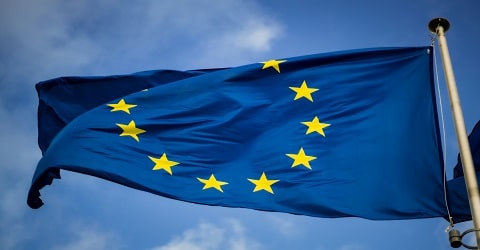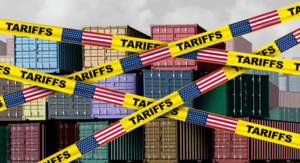
Europe’s Geoeconomic Challenges: A Complex Landscape of Challenges and Opportunities
Europe’s Geoeconomic challenges are evolving, transcending conventional economic paradigms as geopolitical dynamics redefine the continent’s economic landscape. While economists historically emphasized domestic productivity over international competitiveness, the current global context demands a nuanced approach. Amidst the Ukraine conflict and China’s ascendancy, Europe faces a dual imperative: sustaining living standards while bolstering geopolitical influence.
Despite Europe’s resilient living standards, stagnant GDP growth threatens its geopolitical clout. To navigate these challenges, European leaders must prioritize economic revitalization, leveraging innovative strategies to foster growth without succumbing to protectionist impulses. The imperative lies in embracing novel ideas to ensure Europe’s economic resurgence aligns with its geopolitical aspirations, safeguarding against the pitfalls of conflict-driven economic policies.
Europe’s Geoeconomic Challenges
Economists have traditionally emphasized domestic productivity over international competitiveness as the primary driver of national prosperity. However, in today’s increasingly interconnected and geopolitically charged world, this perspective is evolving.
With geopolitical considerations now playing a pivotal role alongside economic factors, Europe faces a complex landscape of challenges and opportunities. Here are seven key points elucidating Europe’s geoeconomic challenges:
Table of Contents
1. The Evolution of Competitiveness
In the historical perspective, economists such as Paul Krugman have stressed the importance of prioritizing domestic productivity over fixating solely on competitiveness. However, as contemporary geopolitical tensions intensify, there’s a paradigm shift underway. Today, amidst Europe’s geoeconomic challenges, conventional wisdom undergoes reassessment.
Geoeconomics, the amalgamation of economic strategy with geopolitical imperatives, necessitates a wider lens on competitiveness. While Krugman’s emphasis on productivity remains relevant, the evolving landscape prompts a broader consideration. Europe’s geoeconomic challenges underscore the urgency for nuanced approaches, where understanding competitiveness within the context of geopolitical dynamics becomes imperative.
Read More: Geopolitical Tensions and Economic Projections in 2024
2. Geoeconomics and Power Dynamics
Geoeconomic analysis highlights power dynamics’ pivotal role in shaping economic strategies, prioritizing relative power and influence over traditional well-being metrics. Europe’s geoeconomic challenges demand a recalibration of economic policies to fortify its geopolitical standing against global competitors like the United States and China.
This shift underscores the need for strategic maneuvering to navigate an increasingly complex international landscape. Europe must strategically leverage its economic resources to assert influence and safeguard its interests. In doing so, it can better position itself amid evolving global dynamics, ensuring its relevance and resilience in the face of geopolitical pressures.
Read More: Unveiling Indonesia’s Economic Myths: An Untold Truths Behind the Promise
3. Europe’s Economic Performance
Despite Europe maintaining commendable living standards, it grapples with a stagnating growth trajectory, marked by a mere 1% annual GDP growth. This predicament contributes to Europe’s geoeconomic challenges, as its share of the global economy diminishes, hindering its geopolitical aspirations.
Concurrently, the gap widens between Europe and formidable competitors, notably the United States. This economic malaise underscores the urgency for strategic revitalization initiatives within the EU framework. Addressing these disparities is imperative for Europe to reassert its economic prowess on the global stage and navigate the complex landscape of contemporary geoeconomic challenges effectively.
4. Implications for Global Currency Dynamics
The dwindling economic strength of the EU poses significant challenges in establishing the euro as a credible rival to the US dollar. Amid Europe’s geoeconomic challenges, its declining economic influence hampers leveraging market access for geopolitical aims.
This erosion not only impacts economic spheres but also resonates across global currency dynamics and geopolitical power structures. As Europe grapples with its geoeconomic challenges, the waning economic prowess diminishes its capacity to shape geopolitical agendas through market leverage, thereby weakening its position in the global arena.
Read More: China’s Economic Prospects in 2024: Opportunities and Challenges
5. Military Spending and Strategic Calculus
Europe’s geoeconomic challenges compound the intricate relationship between economic vitality and military prowess. Stagnant GDP growth, a hallmark of these challenges, directly curtails military spending, impeding Europe’s capacity to assert itself geopolitically. This conundrum looms larger amid the assertive maneuvers of global powers like Russia and China.
Leaders grapple with strategic decisions, recognizing that economic stagnation not only weakens domestic prosperity but also undermines Europe’s influence on the international stage. Thus, addressing Europe’s geoeconomic challenges becomes paramount, as they intersect directly with the continent’s ability to maintain and project military capabilities essential for navigating the complex global landscape.
6. Imperatives for Economic Revitalization
European leaders confront the pressing need to rejuvenate the EU economy amidst Europe’s geoeconomic challenges. Tasked with steering a course toward sustainable growth, they grapple with the formidable task ahead. Notable figures such as former Italian prime ministers Enrico Letta and Mario Draghi advocate for urgent structural reforms, emphasizing the imperative for action.
Yet, the journey toward economic revitalization is fraught with intricate political and economic dynamics, necessitating careful navigation. As they forge ahead, leaders must address Europe’s geoeconomic challenges while striving to implement effective initiatives to bolster the region’s economic resilience and competitiveness.
7. Navigating the Logic of Conflict
In navigating Europe’s geoeconomic challenges, policymakers face a critical juncture. While geopolitical imperatives demand economic revitalization, there’s a pressing need to resist protectionist tendencies.
Succumbing to such instincts risks fostering counterproductive policies that impede innovation and growth. Lessons from history emphasize the importance of a forward-looking strategy that harmonizes strategic imperatives with economic dynamism.
Europe must tread carefully, ensuring a balance that doesn’t sacrifice long-term prosperity for short-term gains. By embracing this approach, the region can effectively confront its geoeconomic challenges while fostering a climate conducive to sustainable growth and global competitiveness.
Bottom Line
In confronting Europe’s geoeconomic challenges, leaders must adopt a nuanced approach that transcends conventional economic wisdom. Prioritizing domestic productivity remains paramount, but it must be complemented by strategic initiatives aimed at enhancing Europe’s geopolitical standing. By embracing innovation, fostering economic resilience, and navigating the complexities of global power dynamics, Europe can chart a course towards sustainable prosperity in an increasingly interconnected world.





